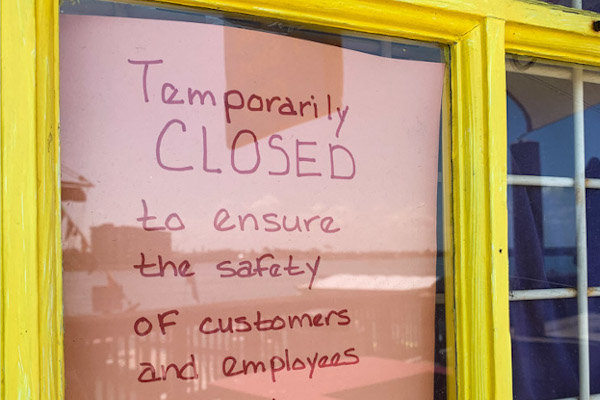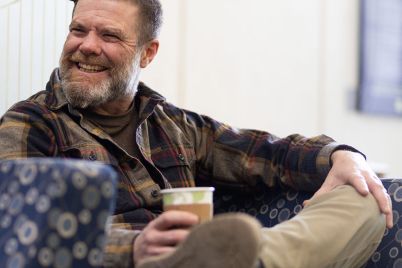
Small businesses in Ann Arbor and all over the country have temporarily closed due to the Covid-19 pandemic. Torrence Williams | Washtenaw Voice
By Claire Convis
Deputy Editor
WCC students, faculty and staff came together for a group video call in an effort to connect in the midst of the Covid-19 crisis.
“Everyone’s invited,” said Veronica Boissoneau of the virtual group meeting. Boissoneau, the coordinator of student organizations and the advisor to Phi Theta Kappa Honor’s Society at WCC, encouraged students to reach out to each other virtually for some “social interaction,” in the time of social distancing.
Pete Leshkevich, head of student activities at WCC, joined the conversation lab and said that during this time of everyone staying in their homes, he has noticed “more people taking time to call loved ones, have Zoom dance parties, and taking walks outside.”
To start the conversation lab off, everyone introduced themselves and shared what they were enjoying most about quarantine. Students mentioned spending more time with their families, watching Netflix, focusing on online classes, and starting new hobbies, such as growing their own food.
WCC student and president of the International Student Association Ali Kurmasha led the group discussion, centering around questions including “What are your thoughts about COVID-19?” “Why do you think cases are increasing in the United States?” and “What do you think the future of education will be after we lift quarantine?”
The group discussed how people are stocking up on supplies such as toilet paper, disinfectant wipes and hand sanitizer, to the point where some shelves in grocery stores are bare.
Another discussion focused on the questions “What lasting impact do you think this pandemic will leave on the world? How do you think it will affect the economy?”
Some speculated that this pandemic brings similar effects as the Great Depression, including high unemployment rates, food insecurity for some people and an unstable stock market.
“I think the general public underestimated the value of health regulations, so we loosened up, and then a pandemic happened,” said Kurmasha.
Wearing a mask is now recommended by the Center for Disease Control in an effort to “help slow the spread of COVID-19,” according to cdc.gov.
Those in the video chat shared helpful tips and resources with each other. An app for iPhones called “COVID-19” features steps to screen symptoms, safety tips and procedures, answers to frequently asked questions about the pandemic and connects users to resources.
For some down time, the Chrome extension Netflix Party was brought up as a fun way to watch movies with your friends even when you’re miles apart. And a Ted Talk give by Gary Liu called, “What the world can learn from China’s response to the coronavirus,” was also recommended.
Olivia Habart, president of the A2 Entrepreneurs Club at WCC, wondered how small businesses are surviving and staying afloat during the crisis.
Some of the students said that they are missing their friends, and that it can be difficult to stay focused on schoolwork without the usual resources and study spots available.
With transitioning to online classes, several students said it’s harder to get into the school mindset when you are at home. Campus is the place where you go to class, do homework and study with your classmates, whereas home is a place more associated with fun and relaxation, which can make focusing on school difficult.
“You can adapt, but it takes effort and time and energy and support,” Teresa Herzog, adviser for the Collegiate Recovery Program at WCC. Herzog also encouraged the group to avoid looking into “conspiracy theories” and other content on the internet that might only serve to increase a student’s anxiety.
Social isolation can take a toll on a students mental health, and during this time in quarantine students should be monitoring their mental health even more and checking in with their family and friends. Online counseling services are still available to students through the WCC website.

